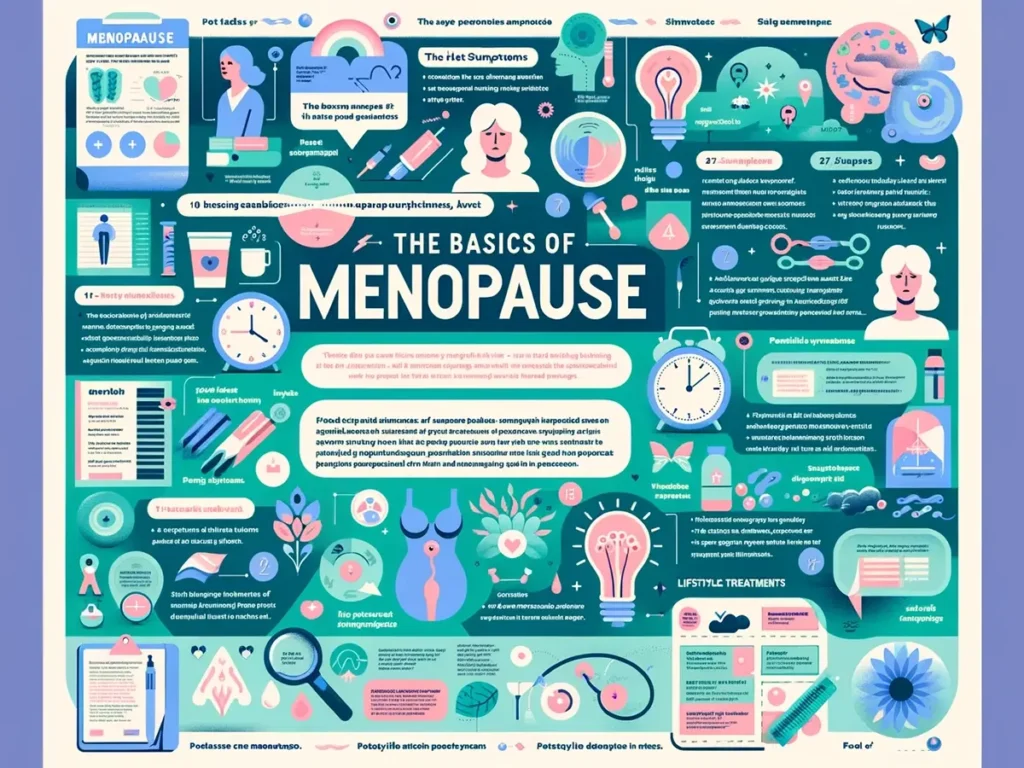Just as menopause marks the end of a woman’s reproductive years, it also brings about a host of uncomfortable symptoms that can significantly impact daily life. Many women wonder if these symptoms are just a temporary phase or if they will persist indefinitely. In this blog post, we will investigate the topic of menopause symptoms and discuss whether they are temporary or can be managed effectively.
Key Takeaways:
- Menopause symptoms are temporary: Menopause is a natural phase in a woman’s life, and while the symptoms can be uncomfortable, they are not permanent.
- Duration varies: The length of time menopause symptoms last can vary from woman to woman, with some experiencing symptoms for a few months to several years.
- Seek medical advice: It’s important for women experiencing menopause symptoms to seek advice from a healthcare provider to discuss treatment options and strategies to manage symptoms.
- Lifestyle changes can help: Making lifestyle changes such as maintaining a healthy diet, regular exercise, managing stress, and getting enough sleep can help alleviate menopause symptoms.
- Hormone therapy: In some cases, hormone therapy may be recommended by healthcare providers to help manage severe menopause symptoms, but it is necessary to discuss the risks and benefits.
The Nature of Menopause Symptoms
If you are experiencing menopause symptoms, you may be wondering whether they are temporary or if they will persist over time. Understanding the nature of menopause symptoms can provide insight into what to expect during this phase of life.
Temporary vs. Persistent Symptoms
On the journey through menopause, some women may experience symptoms that come and go, while others may have more persistent issues. Hot flashes, for example, are often temporary and may decrease frequency and intensity over time. In contrast, symptoms like vaginal dryness and urinary problems may persist unless addressed with appropriate treatment.
It is crucial to differentiate between temporary menopause symptoms and those that require ongoing management. By tracking your symptoms and seeking medical advice, you can better understand the nature of your experience and determine the most effective approach for symptom relief.
Factors Influencing Symptom Duration
Symptom duration during menopause can vary significantly from woman to woman. Genetics, lifestyle choices, overall health, and hormonal fluctuations significantly determine how long symptoms may last. While some women may experience symptoms lasting a short duration of a few months to a couple of years, others may deal with symptoms for a more extended period.
- Genetics and family history can influence the severity and duration of menopause symptoms.
- Diet, exercise, and stress management can impact hormone levels and symptom frequency during menopause.
Working closely with a healthcare provider is essential to better understanding and managing menopause symptoms. They can provide personalized recommendations and treatment options tailored to your specific needs. By addressing contributing factors and implementing appropriate strategies, you can navigate this transition with greater ease and comfort.
Managing Menopause Symptoms
It is crucial to manage menopause symptoms effectively to improve your quality of life during this transitional phase. While menopause symptoms may vary from person to person, various strategies can be employed to alleviate discomfort and navigate this period more easily.
Lifestyle Adjustments
To manage menopause symptoms through lifestyle adjustments, prioritize regular exercise, a balanced diet, and sufficient sleep. Physical activity can help reduce hot flashes, improve mood, and promote better sleep. Additionally, consuming a diet rich in fruits, vegetables, whole grains, and lean proteins can provide crucial nutrients to support your overall health during menopause. Adequate rest is also vital, as insufficient sleep can exacerbate symptoms such as fatigue and irritability.
Furthermore, practising stress-reducing techniques like yoga, meditation, or deep breathing exercises can help minimize anxiety, mood swings, and sleep disturbances commonly associated with menopause. Maintaining a healthy weight, avoiding smoking, and limiting alcohol and caffeine intake can also contribute to managing menopause symptoms effectively.
Medical Interventions
One of the medical interventions commonly used to manage menopause symptoms is hormone therapy. This treatment involves supplementing the body with estrogen or a combination of estrogen and progestin to alleviate symptoms such as hot flashes, vaginal dryness, and mood swings. Hormone therapy is available in various forms, including pills, patches, gels, and creams, and can be tailored to each individual’s needs.
It’s important to note that hormone therapy may not be suitable for everyone, as it carries potential risks and side effects. Alternative medications, such as selective serotonin reuptake inhibitors (SSRIs) or selective norepinephrine reuptake inhibitors (SNRIs), can also be prescribed to help manage specific symptoms like depression, anxiety, or hot flashes. Consulting with a healthcare provider to discuss the most appropriate medical intervention for your symptoms and health profile is crucial for effectively managing menopause symptoms.
Beyond Symptoms: Long-Term Health Considerations
Bone Health and Osteoporosis
Symptoms of menopause can significantly impact bone health, as the drop in estrogen levels can lead to a loss in bone density. Osteoporosis, a condition characterized by weakened and brittle bones, becomes a concern for many women during and after menopause. Women must prioritize their bone health during this stage of life to reduce the risk of fractures and maintain overall bone strength.
Regular weight-bearing exercises, adequate calcium and vitamin D intake, and consulting with a healthcare provider about potential bone density screenings or medications are essential steps in preserving bone health post-menopause. By taking proactive measures, women can mitigate the effects of hormonal changes on their bones and promote long-term skeletal health.
Cardiovascular Changes
Any discussion about menopause and long-term health considerations would be incomplete without addressing the impact on cardiovascular health. Estrogen plays a protective role in maintaining healthy blood vessels and heart function, so the decline in estrogen levels during menopause can affect cardiovascular health.
This underscores the importance of adopting heart-healthy lifestyle habits, such as maintaining a balanced diet, exercising regularly, managing stress, and avoiding smoking. Regular check-ups with a healthcare provider to monitor blood pressure, cholesterol levels, and other cardiovascular risk factors are crucial in maintaining heart health during and after menopause. By being proactive about cardiovascular health, women can reduce their risk of heart disease and other cardiovascular conditions in the long run.
To wrap up
With these considerations, it is essential to note that menopause symptoms are temporary and will eventually subside as the body adjusts to its new hormonal balance. It’s crucial for women experiencing these symptoms to seek support from healthcare professionals and explore various treatment options to manage the symptoms effectively. Understanding that menopause is a natural and temporary stage in a woman’s life can provide comfort and reassurance during this transitional period.
FAQ
Q: What are menopause symptoms?
A: Menopause symptoms are a combination of physical and emotional changes that women experience as they reach the end of their reproductive years. These symptoms can include hot flashes, night sweats, mood swings, vaginal dryness, and decreased libido, among others.
Q: Are menopause symptoms temporary?
A: Yes, menopause symptoms are temporary for most women. They typically last for a few years as the body adjusts to the hormonal changes associated with menopause. However, some women may experience symptoms for a more extended period.
Q: How can menopause symptoms be managed?
A: Menopause symptoms can be managed through various methods, including lifestyle changes, such as maintaining a healthy diet and regular exercise, hormone therapy, or other medications prescribed by a healthcare provider. Alternative therapies like acupuncture and herbal supplements may also provide relief for some women.
Q: Can menopause symptoms be prevented?
A: Menopause is a natural biological process that cannot be prevented. However, leading a healthy lifestyle that includes regular exercise, a balanced diet, and stress management techniques may help reduce the severity of menopause symptoms.
Q: When should I see a doctor about my menopause symptoms?
A: If you are experiencing severe or persistent menopause symptoms that are affecting your quality of life, it is essential to consult a healthcare provider. They can help determine the best course of treatment to manage your symptoms and improve your overall well-being during this transitionary phase.






